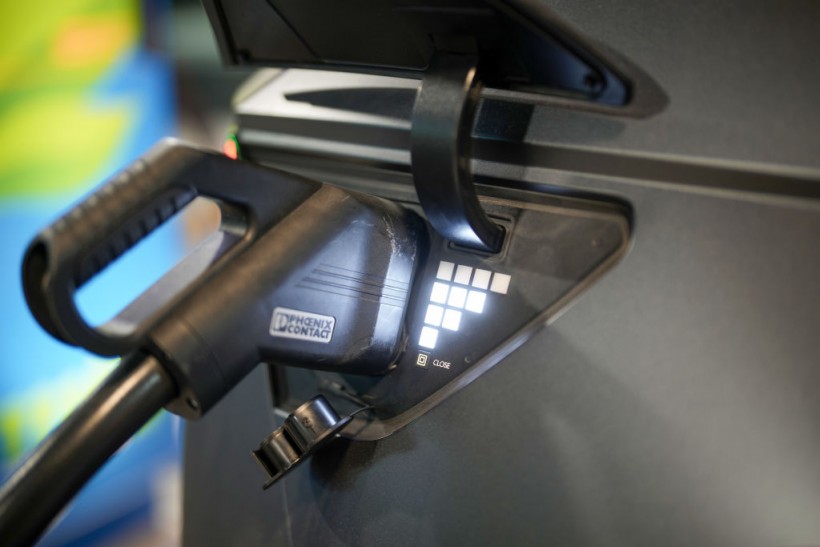As per Engadget, proveelectric vehicles prove to give their owners more problems than most vehicle types after Consumer Reports saw vehicle type causing 79% more problems compared to gasoline-powered vehicles, with plug-in hybrids having roughly twice as much with nearly 150% more problems.
The report indicates that as more electric vehicles (EVs) enter the market and manufacturers produce more of each model, more instances are being observed, such as issues with the motors in the EV drive systems, the EV charging systems, and the EV batteries.

(Photo : Christopher Furlong/Getty Images)
MANCHESTER, ENGLAND - APRIL 21: A Hyundai Ioniq battery electric vehicle (BEV) charges at a Motor Fuel Group (MFG) EV Power forecourt on April 21, 2022 in Manchester, England.
CBS reports that the most common complaints also include fit issues between the inside and outside panels of the cars. Consumer Reports, however, noted that the general reliability of electric vehicles should increase as EV producers continue to learn how to create entirely new power systems.
However, Consumer Reports pointed out that persistent worries about dependability would probably compound with worries about increased prices, a lack of charging stations, and lengthy charging periods, which would make many purchasers hesitate before converting to the technology.
Additionally, reports indicate that customers have taken longer than anticipated to adopt EVs, partly because they require additional infrastructure, such as home electric charging outlets, and are sometimes more expensive to maintain than conventional cars.
Read Also: Chinese Automaker Unveils Pollution-Free Car Made With Plastic, Seaweed
Plug-In Hybrid EV Nightmare
Plug-In hybrid electric vehicles (PHEVS) are twice as headache-inducing for consumers, with 146% more problems than gasoline-powered vehicles; CBS states that could be because PHEVs mix internal combustion engines with electric drives, adding another layer of complexity.
Consumer Reports echoes this notion, stating that the vehicles may have more issues than conventional and electric vehicles as more can go wrong with its complex engines. According to Consumer Reports, as stated by CBS, PHEVs might have issues with all 20 problem areas, ranging from squeaky brakes to EV charging issues.
The Audi Q5 and Chrysler Pacifica, which received a dismal 14 out of 100, are the low points of PHEVs.
Nevertheless, according to Consumer Reports, the report says that certain PHEVs do better than others, which finds that the Kia Sportage and Toyota RAV4 Prime have above-average dependability ratings. It also stated that three PHEVs had average dependability ratings: the Ford Escape, Hyundai Tucson, and BMW X5.
Electric Vehicles Praised by the Study
Engadget states that Lexus triumphed in the study's ratings; every model it produced received a rating of at least above average, with the NX as the lone exception, with only an average rating.
Toyota also performed well, with the 4Runner SUV ranking as one of the most reliable models. On the other hand, the electric Tundra truck did not do well. The RDX and TLX from Acura are two more EVs with above-average ratings.
Data on 330,000 automobiles was gathered for the study, which asked Consumer Reports members about problems they had with their rides in the previous year. The data in the report contained a few (early released) 2024 models in addition to models from 2000 to 2023.
The most recent vehicle dependability report from Consumer Reports was released at the same time as manufacturers were releasing several new models, and consumers may take advantage of a federal tax credit of up to $7,500 for buying an electric vehicle.
Related Article: Kia America Unveils New EV Models at the 2023 Los Angeles Auto Show










